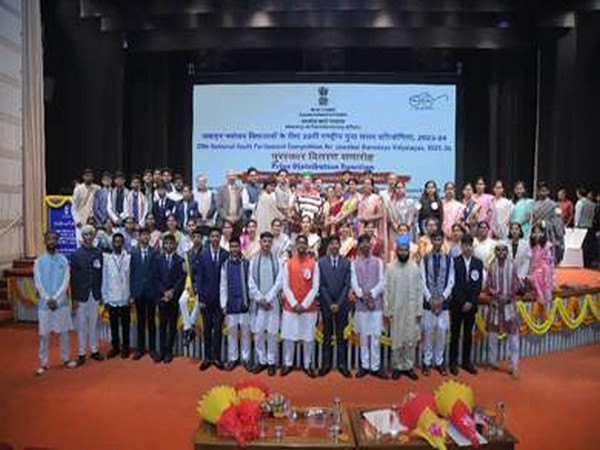The government has launched a revamped version of the National Youth Parliament Scheme (NYPS) web portal, known as NYPS 2.0, aimed at broadening citizen participation in the mock parliamentary initiative, the Ministry of Parliamentary Affairs said in a statement on Wednesday.
What is NYPS?
First introduced in February 2019, the National Youth Parliament Scheme (NYPS) seeks to promote democratic values among India’s youth by providing a platform for engaging in structured debates on social, political, and governance issues. The scheme allows participants to simulate parliamentary proceedings, mirroring the functioning of the Indian Parliament.
Key Objectives of NYPS 2.0
The key objectives of NYPS 2.0 are to strengthen the roots of democracy, inculcate discipline and tolerance for diverse views, enable the student community and citizens to understand parliamentary procedures and enhance their knowledge of the Government’s functioning and Constitutional values, and foster a sense of living life in a democratic way.
Expanded Access and Inclusivity
The upgraded NYPS 2.0 expands its scope beyond students of recognized institutions, allowing all citizens to participate, irrespective of economic status, gender, caste, creed, religion, race, or region.
Participation Categories
The revamped scheme enables participation through three categories: Educational institutions can organize Youth Parliament sittings as per the guidelines on the portal. Students from classes VI to XII can participate in the “Kishore Sabha” sub-category, while Undergraduate and Postgraduate students can join the “Tarun Sabha” sub-category. Citizens can form groups to organize Youth Parliament sittings following the guidelines on the portal. Any individual citizen can participate by attempting a quiz on the theme “Bharatiya Democracy in Action.”
Growing Participation
Since its inception, the NYPS has seen varying levels of participation. Registration numbers for Youth Parliament sittings were 4,369 in 2019-20, 3,579 in 2020-21, and just 65 in 2021-22 due to the pandemic. Participation rebounded to 2,337 in 2022-23 and 1,346 in 2023-24. As of March 17, 2025, the 2024-25 period has already recorded 7,261 registrations, reflecting growing interest in the revamped scheme.




















